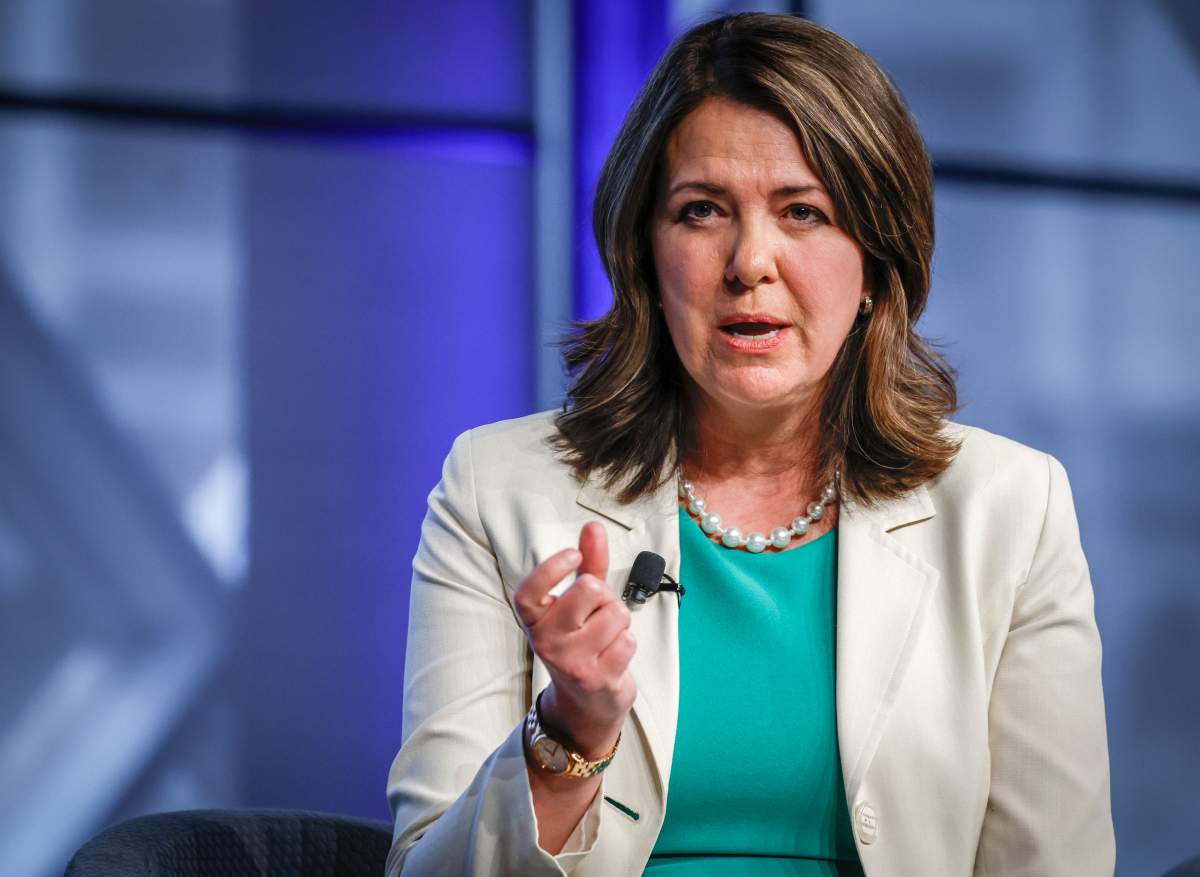Alberta Premier Danielle Smith said the proposed Compassionate Intervention Act is a “last resort” if the province exhausts all options to help those struggling with addictions.

The act, first reported by the Globe and Mail on April 18, would give police and family members or legal guardians of drug users the ability to refer adults and youth into involuntary treatment if they pose a risk to themselves and others.
The Globe and Mail also reported the government is expected to introduce the bill later this year.
The policy — the first of its kind in Canada if passed — is part of the United Conservative government’s model of recovery and treatment while stripping down harm reduction resources like supervised consumption sites (SCS).
At a news conference on Enoch Cree land on Monday afternoon, Smith said involuntary treatment won’t happen in most cases.
Intervention would be forced but treatment is voluntary, she said, citing Portugal as an example of a successful model.
Mental Health and Addictions Minister Nicholas Milliken said Monday the act is still being considered and a final decision has not yet been made.

“We want things to be done in a voluntary way first,” Smith told reporters.

Get weekly health news
“People will have multiple opportunities to voluntarily get treatment at every turn, especially if they have multiple overdoses (a day).
“We’re consulting further on whether it gets to the point if they would be ordered into treatment. We haven’t finished those consultations yet.”
Smith claimed these interventions are sometimes necessary because people are “slowly killing themselves on the streets.”
Smith added that every person has the opportunity to “get their lives back” through treatment and recovery, claiming the new legislation is going to save lives.
However, the government has not released public data about the effectiveness of its recovery programs and overdose prevention sites.
“All of this is about saving lives… We think this is the most compassionate way to try to address this problem because we are watching people slowly killing themselves on the streets and we need to draw a line and say we’re not going to let that happen anymore,” Smith said.
But doctors and advocates have raised ethical concerns about the Compassionate Intervention Act, arguing the act will violate Charter Rights.

Margot Young, a professor at the Allard School of Law at the University of British Columbia, told QR Calgary on April 19 the act will violate section 7 of the Charter which guarantees the life, liberty and personal freedoms of all Canadians.
Picking up and forcing drug users to go into treatment is neither compassionate nor practical or effective, she said.
“This response to (the toxic drug crisis) is a very narrow and punitive response to a really complex and pressing issue,” Young said.
Elaine Hyshka, an associate professor at the University of Alberta’s School of Public Health, said involuntary treatment may exacerbate issues.
The gold standard treatment for people with drug addictions is medication in an outpatient setting, either at home or elsewhere, she said. Those who are forced into treatment programs have a higher chance of relapsing and dying, as high as 90 per cent.
Smith added that every person has the opportunity to “get their lives back” through treatment and recovery, claiming the new legislation is going to save lives.
“I empathize greatly with the need to do more to stop people from dying… This is not the solution for people at risk of death,” Hyshka told Shaye Ganam on QR Calgary and 630 CHED.








Comments
Want to discuss? Please read our Commenting Policy first.